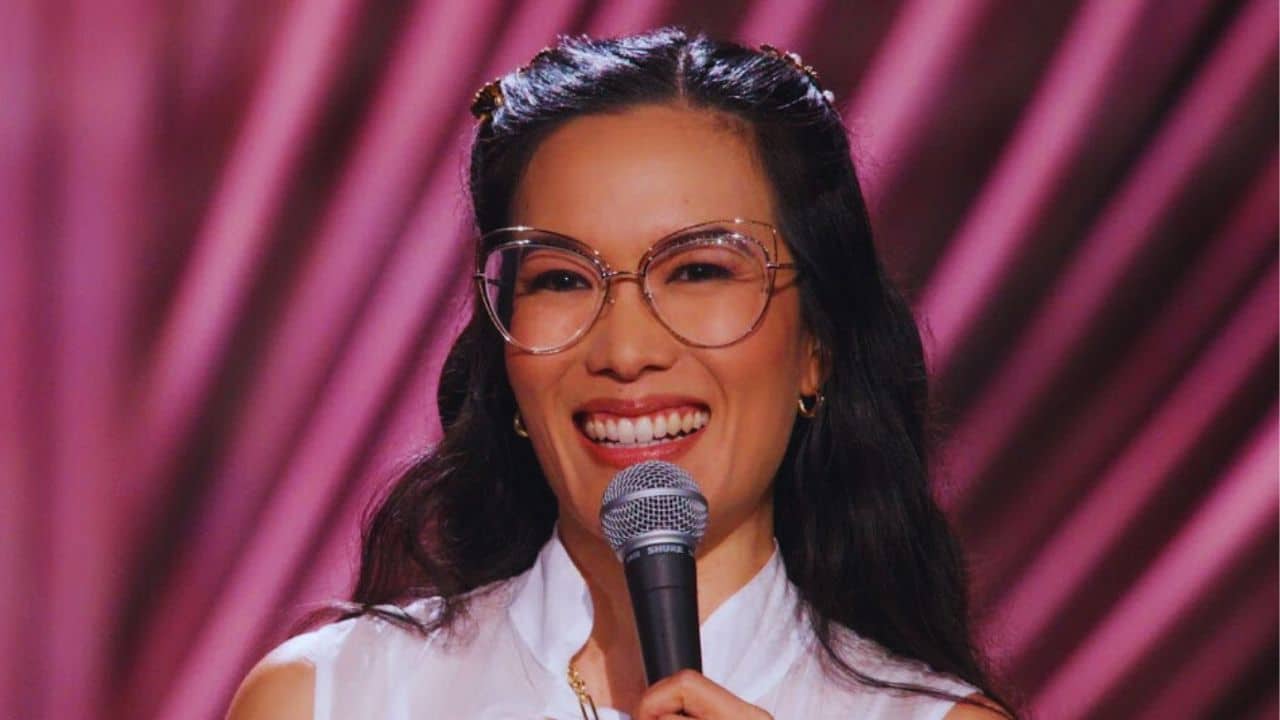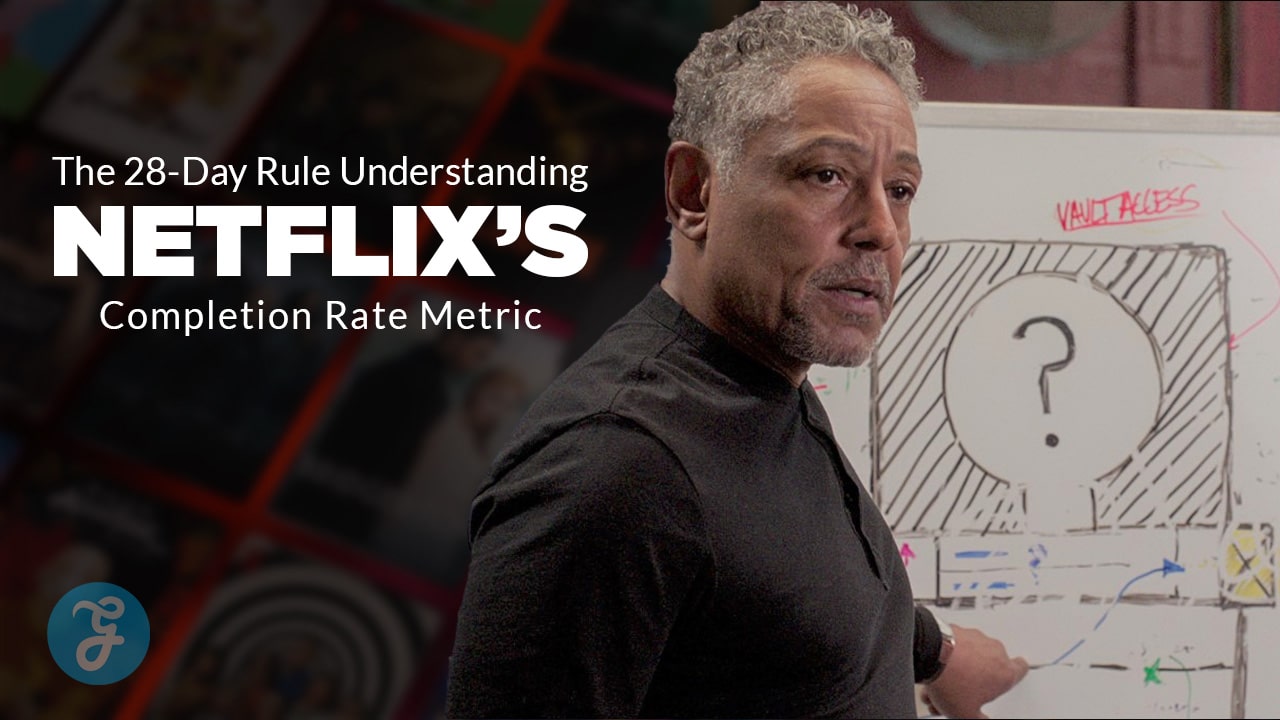Comedian Ali Wong has never shied away from discussing intimate topics onstage, especially when it comes to sex and relationships. Her first three stand-up specials — Baby Cobra (2016), Hard Knock Wife (2018), and Don Wong (2022) — tackled these themes through the lens of her long-term marriage. In her fourth special, Single Lady, Wong returns to the stage with a dramatically different outlook, no longer the wife confined by marital expectations. After two years of being single following a divorce from her husband of nearly a decade, Wong finds herself in uncharted territory, both personally and creatively. With no restraints, Wong takes the audience through her post-divorce journey with the same vivid, graphic humor she once used to describe pregnancy and childbirth, but this time, the topic is her unapologetic exploration of single life.
What sets Single Lady apart from Wong’s previous specials is its sense of liberation. Where her earlier material focused on the realities of marriage and motherhood, Single Lady breaks free of those boundaries and offers a raw, honest, and often outrageous look at what life is like for a newly divorced, financially independent woman in her forties. As Wong proclaims early in the special, “I really went on a tear,” a statement she backs up with a series of wild anecdotes about her experiences dating after her highly publicized split. The 42-year-old doesn’t hold back, recounting every detail with gleeful abandon to a packed audience at Los Angeles’ Wiltern Theater.
However, Single Lady is about more than just Wong’s personal adventures. It’s also her way of challenging society’s often pitiful view of middle-aged divorced women. Wong flips that stereotype on its head, presenting herself as a vibrant, fun-loving, and empowered woman who is thriving — not floundering — after her marriage ended. “Look how much fun I’m having,” she declares to the audience, and it’s impossible not to be swept up in her infectious energy. Wong’s message is clear: Divorce, particularly for women in their forties, can be a time of empowerment and rediscovery, not despair. She turns her own experience into a broader commentary, though the specifics of her life are anything but ordinary.
A Public Divorce and a New Era of Freedom
Wong’s divorce was no private matter. It was covered extensively in the media, turning her personal life into public spectacle. In Single Lady, she refers to the attention her split garnered as “a bat signal” that alerted potential suitors that she was suddenly available. And available she was. Wong shares, with her trademark blend of brutal honesty and humor, the flood of attention she received from men across different backgrounds and ages. From a famous film director to a 25-year-old who sent her his first-ever thirst trap video, to a 60-year-old who screamed during climax, Wong’s post-divorce dating stories are as varied as they are hilarious.
For Wong, the post-divorce chapter is about more than just dating — it’s about fully embracing her newfound freedom. “I’m not trying to trap a man anymore,” she jokes, a nod to the recurring theme of her first breakout special, Baby Cobra, where she humorously expressed a desire to marry a rich man to take care of her. Now, freed from the constraints of monogamy and long-term commitment, Wong is enjoying all that the modern dating scene has to offer, sampling it with the same intensity and enthusiasm she once devoted to her career.
The Power of Financial Independence
Money — and the freedom it provides — has always been a key theme in Wong’s comedy. In Baby Cobra, she made audiences laugh by revealing that despite her goal of marrying a wealthy man, it was she who ended up paying off her husband’s student loans. This dynamic — the idea that Wong is in control, not just in her relationships but also financially — continues to shape her comedic perspective in Single Lady.
As a highly successful comedian and Emmy-winning actress (thanks in part to her role in Beef), Wong now has a level of financial independence that few divorced women enjoy. In her special, she makes no apologies for this success and embraces it with a confidence that is both refreshing and rare. She insists that her suitors pay for the first date, even though, as she cheekily points out, “I’m a millionaire.”
Wong’s financial success gives her the ability to approach dating purely for her own enjoyment, without the economic considerations that weigh on many other women. While for most, marriage or partnership is as much about financial security as it is about romance, Wong makes it clear that she’s dating purely on her own terms. Whether she’s flying her hookups out to L.A. or installing expensive Toto toilets in her home, Wong’s wealth allows her to experience life as a “financially independent divorced mom,” something she knows most of her audience can only dream of. This mindset — the ability to date without concern for financial need — sets Wong apart from her peers, making her post-divorce experience unique and aspirational for many women watching.
Smashing Taboos and Challenging Norms
One of the reasons Wong has resonated so deeply with audiences over the years is her willingness to tackle subjects that others shy away from. Whether it’s the nitty-gritty details of breastfeeding or the raw realities of childbirth, Wong has always been fearless in confronting taboo topics head-on. In Single Lady, she continues this tradition, using her platform to discuss everything from the emotional aftermath of divorce to the intricacies of modern dating — all while maintaining her signature blend of raunchy humor and sharp social commentary.
In Don Wong, her 2022 special, Wong presented herself with a similar level of bravado, sharing her thoughts on the secrets to a healthy marriage with a confidence that some critics felt bordered on smugness. However, in Single Lady, there’s a noticeable shift in tone. While Wong remains confident, her humor now has a more defiant edge. She opens the special by admitting that the media coverage of her divorce initially made her feel ashamed, but by the end of the hour, she proudly declares that she and her ex-husband are now best friends and excellent co-parents. The reasons for their split remain a mystery — Wong doesn’t delve into the details of why the marriage ended, choosing instead to focus on her own growth and newfound freedom.
From this vantage point, Wong’s confidence feels less like self-satisfaction and more like a hard-earned victory. She’s no longer interested in playing by the rules or managing other people’s emotions. When she breaks up with a fling, she’s more concerned with turning the experience into comedic material than with sparing her ex’s feelings. When admirers send her gifts, she happily accepts them without feeling any obligation to reciprocate. Wong is unapologetically herself, and Single Lady showcases this newfound self-assuredness in all its glory.
Subverting Traditional Beauty Standards
While Wong’s humor is bold and often unfiltered, she doesn’t shy away from poking fun at herself either. Throughout Single Lady, she repeatedly refers to herself as “a kind 6,” comparing herself to the 10s that men her age were supposedly after the last time she was single. It’s one of the few moments in the special that feels somewhat out of place, given Wong’s obvious confidence and success. In reality, Wong is far from average-looking, and her sharp wit and assertiveness make her stand out in any crowd.
One of the special’s standout moments comes when Wong turns her comedic gaze towards male comedians and the younger women they often date. In a bit that blends humor with biting social commentary, Wong describes being forced to “babysit” the much younger girlfriends of male comedians at dinner parties, sneering at what she calls “Insta-hoes.” It’s not the most politically correct bit, nor is it particularly sisterly, but it’s an honest expression of feelings that many women in Wong’s position might share but hesitate to voice.
A New Relationship, A New Beginning
While much of Single Lady focuses on Wong’s time as a single woman, fans of the comedian know that her single days are already behind her. Since 2023, Wong has been in a high-profile relationship with fellow comedian Bill Hader, a romance that she alludes to throughout the special without mentioning Hader by name. Wong jokes that she could only date a divorced dad because she needs a man who’s been “pre-yelled at,” a nod to the challenges of dating someone who understands the complexities of co-parenting and post-divorce life.
Wong’s relationship with Hader provides a natural conclusion to her special, allowing her to frame her wild, post-divorce dating adventures as a finite chapter in her life that she can now reflect on and turn into comedy. However, as Single Lady makes clear, Wong’s experience is far from typical. While she declares that “for women, 40 is the golden age — to get divorced,” the reality is that most divorcées won’t find themselves as sought-after or as financially independent as Wong did in the aftermath of her split.
Single Lady: A Triumph of Confidence, Humor, and Defiance
Ultimately, Single Lady is more than just a comedy special — it’s a bold, hilarious, and deeply personal reflection on life after divorce. Wong’s unique blend of confidence, humor, and candor makes her one of the most compelling voices in comedy today, and Single Lady only cements her status as a trailblazer in the field. For Wong, the special isn’t just about sharing funny stories or making people laugh (though it certainly does both); it’s about redefining what it means to be a middle-aged divorced woman in a society that often views them as pitiful or past their prime.
Wong’s unapologetic embrace of her success, her wealth, and her freedom makes Single Lady a must-watch for fans of her work and anyone who’s ever questioned the traditional narratives around divorce and aging. Wong isn’t offering a how-to guide for navigating life after divorce — her experience is too unique for that — but she is offering something equally valuable: a riveting, empowering, and highly entertaining testimonial of what it looks like to live life on your own terms.


































